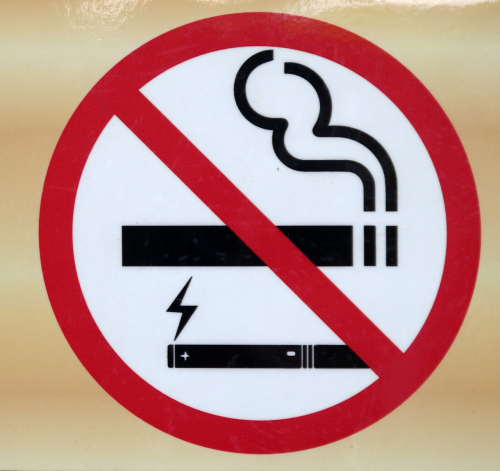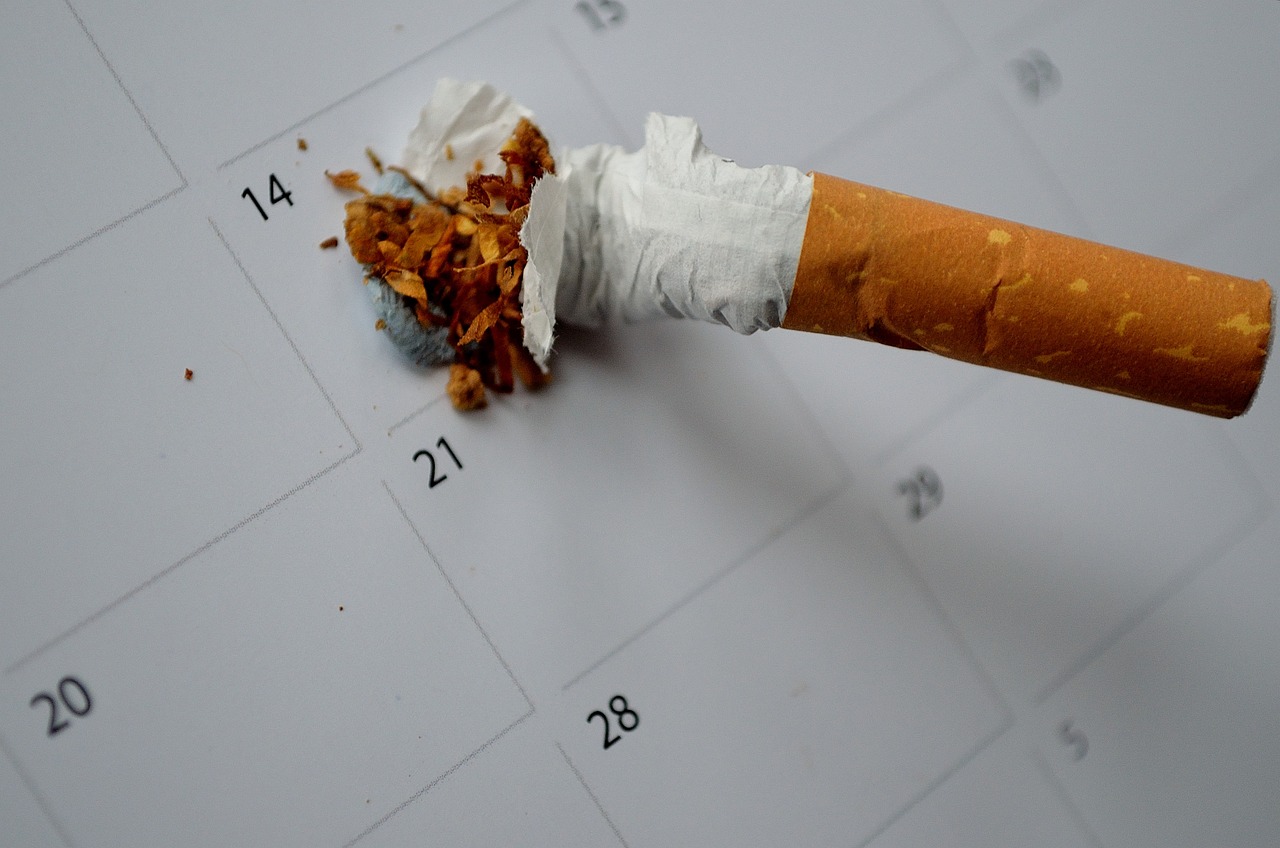Healthy Nurse, Healthy Nation™ Blog - Your Path to a Smoke-Free Life
Published
It isn’t news that smoking hurts your health. Yet millions of people still do it despite widespread awareness of the harmful effects of tobacco.

Data from Healthy Nurse, Healthy Nation’s (HNHN) HealthyNurse Survey showed that 8.4% of respondents use tobacco or nicotine in some form. Among them, 58.9% use vapes, and 37.3% smoke cigarettes. This data set included about 12,000 respondents participating in the survey from May 1, 2021 through November 1, 2023.
As a nurse or nursing student, you're uniquely positioned to make a difference, both in your life and in the lives of those you care for. Although the third Thursday in November is the American Cancer Society’s Great American Smokeout® — the perfect time to embark on a smoke-free journey is now.
Is Smoking Still a Problem?
Smoking remains a major public health concern. The American Cancer Society says about 34 million American adults smoke cigarettes. It’s the single largest preventable cause of death and illness globally. Smoking is responsible for about 480,000 deaths worldwide each year, which equals about 1 in 5 deaths.
And “smoking” includes products beyond traditional cigarettes and cigars, such as:
- Vaping (e-cigarettes) involves inhaling an aerosol produced by heating liquids containing nicotine, flavorings, and other chemicals. People perceive vaping as safer, but it has plenty of risks, particularly among youth. In a recent report from the U.S. Food and Drug Administration (FDA), 7.7% of students (2.13 million) reported using e-cigarettes.
- Heat-not-burn (HNB) tobacco products heat tobacco at lower temperatures, releasing a tobacco-flavored vapor. While they aim to reduce harm compared with traditional cigarettes, researchers are still studying their long-term health effects.
- Hookah or water pipe smoking, also known as shisha, involves smoking flavored tobacco through a water pipe. It carries health risks because it exposes users to tobacco toxins.
- Dabbing is a method of consuming potent cannabis concentrates through vaporization. It leads to a rapid onset of intense effects and has many health concerns.
- Smokeless tobacco products like snus are pouches of loose tobacco that users place in their mouths. While they claim to reduce harm, they still pose serious health risks.
All tobacco products contain nicotine. And nicotine is as addictive as drugs like heroin and cocaine, making it one of the most addictive substances known to humans. Research shows that 68% of people who smoke regularly want to quit, but the addictive nature of nicotine makes it challenging.
The good news: It's possible to quit smoking. Millions of people have done it successfully. The U.S. Centers for Disease Control and Prevention says that more than 3 out of 5 adults who have ever smoked cigarettes have quit.
Why Quit? The Health Benefits of Ditching Smoking
Quitting smoking or any form of tobacco use is an act of profound self-care. It’s a transformative journey that can enhance your life. Quitting smoking isn’t just about kicking a habit; it's about regaining control, vitality, and years of healthier living. Deciding to quit smoking is committing to a brighter, smoke-free future.
The health benefits of quitting (according to the American Cancer Society) are remarkable:
- Within 20 minutes of quitting, your heart rate and blood pressure start to normalize.
- After a few days, the levels of carbon monoxide in your blood return to their natural state.
- In 2 weeks to 3 months, your circulation improves, and your lung function experiences a significant boost.
- In 1 to 12 months, you'll notice a decrease in coughing and shortness of breath. This is also when the tiny cilia, hairlike structures that help clear mucus from your lungs, regain their normal function and reduce your risk of infections.
- After 1 to 2 years, your risk of heart attack drops dramatically.
- After 5 to 10 years, your risk of developing mouth, throat, and voice box cancers is halved. Your likelihood of experiencing a stroke decreases.
- After 10 years, your risk of lung cancer is approximately half that of someone who currently smokes. Your chances of developing bladder, esophageal, and kidney cancers decline.
- After 15 years, your risk of coronary heart disease is almost the same as that of someone who never smoked.
If you or someone you love smokes, think of the decision to quit as investing in a healthier and happier tomorrow. For the long-term, the health rewards are immeasurable: lower risk of cancer and heart disease, breathing with unburdened lungs, and adding vibrant, smoke-free years to your life.
Resources to Ditch Smoking for Good
Remember: Millions of people have come before you on this road toward a smokeless future. You are not alone. One of the most well-known organizations available to you is the American Cancer Society. They provide a wealth of information, guidance, and support for those looking to quit smoking.
In addition to the American Cancer Society, other resources include:
- Smokefree.gov: Smokefree.gov offers evidence-based information, tools, and resources to help you quit smoking.
- 1-800-QUIT-NOW: A toll-free helpline connects you to your state's quitline for personalized coaching and support.
- Your health care provider: Talk to your primary care provider, who can advise and guide you. They can also prescribe smoking cessation medications to help you quit.
- Support from friends and family: Lean on your loved ones for emotional support and encouragement. Spend time with those who are positive influences on your goal to quit.
The journey toward a smoke-free life is worth every effort. Your commitment to quitting sets a powerful example for the patients you care for. With the right support, determination, and resources, you can make the positive change your health and well-being deserve.
For more information, read ANA's position statement [PDF] on preventing and quitting tobacco and other nicotine products.
Did you successfully quit smoking? What advice do you have for other nurses or nursing students who are hoping to quit? Share with us in our comments below.

Not a member of Healthy Nurse, Healthy Nation (HNHN) yet? Join today!
Sign up for our monthly challenges!
Blog Quality of Life
11/29/2023 9:27am CST



Post a Comment or Question